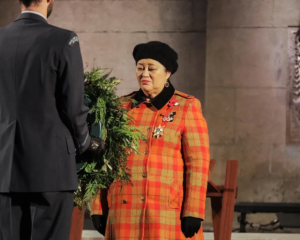New Zealand and Australia have received top marks in a US State Department global report on human trafficking, while Papua New Guinea was slammed with the lowest ranking alongside Syria, Zimbabwe and North Korea.
However, the release of the annual Trafficking in Persons Report by US Secretary of State John Kerry yesterday did not leave New Zealand and Australia unscathed.
Both nations were called out for not doing enough to combat forced labour and sex trafficking.
"Australia is primarily a destination country for women and girls subjected to sex trafficking and for women and men subjected to forced labour," the report states.
The report ranks nations in five tiers, with Australia, New Zealand, the United States, the United Kingdom, the Philippines, Lithuania and 30 other countries in the top tier as they meet the minimum standards of America's Trafficking Victims Protection Act.
Australia, however, should "vigorously investigate and prosecute trafficking offences, with increased focus on labour trafficking and convict and stringently sentence sex and labour traffickers".
It should also increase efforts to train police and other front-line officers to recognise indicators of trafficking and improve training for prosecutors and judges on trafficking laws.
In New Zealand, foreign men and women from China, India, the Philippines, South Africa and countries in the Pacific, Latin America and the UK are vulnerable to forced labour in the nation's agricultural, construction and hospitality sectors, or as domestic workers.
The report criticises New Zealand's Omnibus Crime Bill for not including a provision making the sex trafficking of a child a crime regardless of deception or coercion, which is inconsistent with international law.
The penalty of a term not exceeding 20 years' imprisonment or a fine not exceeding $NZ500,000 or both "is generally not sufficiently stringent because of the possibility that a fine can be imposed in lieu of imprisonment".
"Further, with regards to sex trafficking, the penalty is insufficient because it is not a penalty commensurate with that imposed for other serious crimes, such as rape," the report states.
New Zealand should "increase efforts to identify victims through proactive screening of vulnerable populations, including women and children in prostitution, foreign workers, and illegal migrants".
The report criticises Papua New Guinea for not fully meeting the minimum standards for the elimination of trafficking and for not making significant efforts to do so.
The State Department estimates 19% of Papua New Guinea's labour market is comprised of child workers.
Children as young as five are reportedly subjected to sex trafficking and forced labour; young girls are employed in bars as "Mosko Girls" to provide companionship to patrons; boys as young as 12 are employed for low pay to carry heavy loads as "market taxis"; parents force their children to beg or sell goods on the street; and tribal leaders reportedly trade with each other "exploitative labour and service of girls and women for guns and to forge political alliances".












